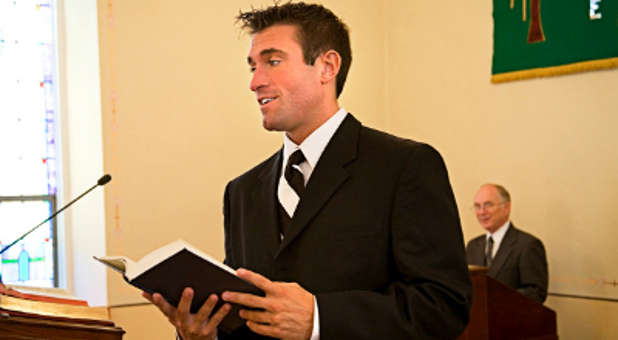
They are the largest generation in America's history. At 78 million persons, they surpassed the Boomer generation by two million. Born between 1980 and 2000, they are shaping our businesses, our government, and our culture.
And they are shaping our churches.
As a Boomer, I remember well how pastors were viewed just a few decades ago. In the 1960s, 1970s, and 1980s, the "successful" pastors were those who made it to large county seat churches. In the 1990s and early 2000s, the measure of success was leading larger churches.
"The times they are a changin' " (Bob Dylan for the uninformed).
To be sure, there are still millennial pastors moving to larger churches. And these young adult leaders are not averse to megachurches.
But more millennial pastors sense God's call to the smaller and mid-size churches. Why has their attitude been so different from their predecessors? I asked a number of these young leaders, and here are five of the responses they gave me.
1. They want to invest their lives in a community. The millennial pastors as a whole are highly community focused. And they realize that they and their churches will not be fully embraced in a short period of time.
2. They want more stability for their families. To be fair, these young leaders will not deny a call to another community or even another country if they sense God's call in that direction. But any move has to be convincing, convicting, and compelling. I know. I moved my family four times in ministry. I am not sure I followed God as much as my own selfish ambitions.
3. They don't measure ministry success and fulfillment by numbers and size. Another caveat is in order. These Millennial pastors do desire to reach more people. They truly want to make more disciples. But their worth and esteem is not measured by "what they are running."
4. They are starting new churches. This generation is a church planting generation. Many of them desire to stay with those churches for the long haul.
5. They are leading church revitalization. They are sufficiently wise to understand that the turnaround of a declining established church is a long-term endeavor. They are willing to make such commitments to win trust and lead revitalization.
As with any generation, we must be careful with generalizations. There are always exceptions and differences. But, as a rule, millennial pastors have a much longer-term perspective on church tenure.
And, they see their ministries fulfilled by lives being changed and communities impacted. If the result is a larger church, they are fine with it. But numbers and size are not their measures of success, contentment or obedience.
Thom Rainer is the president of LifeWay Christian Resources. For the original article, visit thomrainer.com.
Get Spirit-filled content delivered right to your inbox! Click here to subscribe to our newsletter.
Dr. Steve Greene is now sharing stories, teachings, and conversations with guests who lead with love on Love Leads, a new podcast. Listen now.
Dr. Mark Rutland's
National Institute of Christian Leadership (NICL)
The NICL is one of the top leadership training programs in the U.S. taught by Dr. Mark Rutland. If you're the type of leader that likes to have total control over every aspect of your ministry and your future success, the NICL is right for you!
FREE NICL MINI-COURSE - Enroll for 3-hours of training from Dr. Rutland's full leadership course. Experience the NICL and decide if this training is right for you and your team.
Do you feel stuck? Do you feel like you’re not growing? Do you need help from an expert in leadership? There is no other leadership training like the NICL. Gain the leadership skills and confidence you need to lead your church, business or ministry. Get ready to accomplish all of your God-given dreams. CLICK HERE for NICL training dates and details.The NICL Online is an option for any leader with time or schedule constraints. It's also for leaders who want to expedite their training to receive advanced standing for Master Level credit hours. Work through Dr. Rutland's full training from the comfort of your home or ministry at your pace. Learn more about NICL Online. Learn more about NICL Online.


